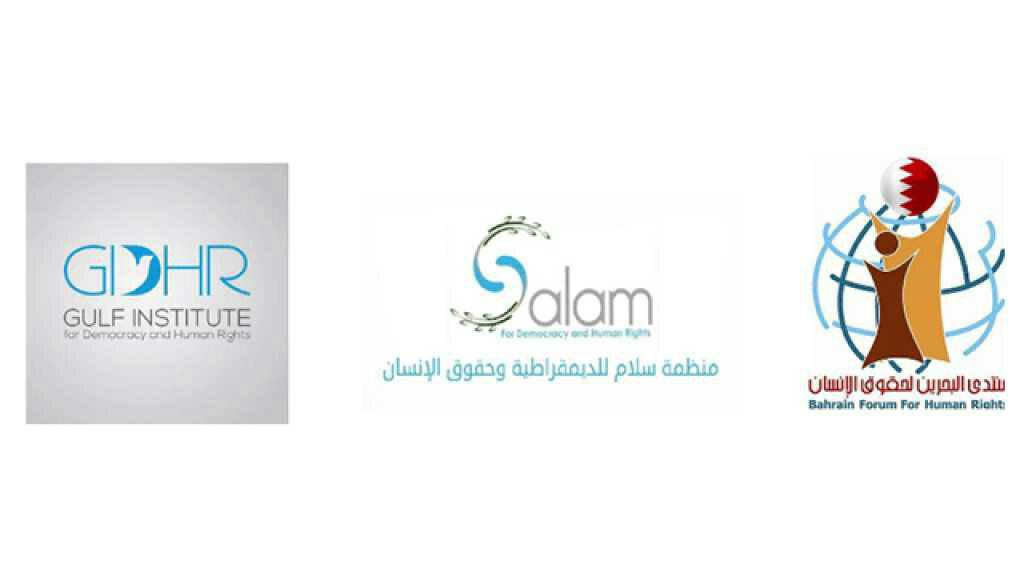
Three Bahraini organisations call on Member States of the Human RightsCouncil to stand up for human rights in Bahrain at HRC41 and beyond Three Bahraini human rights organisations sent a joint letterto members of the Human Rights Council, informing them of the deterioration ofthe human rights situation in Bahrain and calling for Bahrain’s human rightsrecord to be scrutinised by Member States during the 41st session of the UnitedNations (UN) Human Rights Council (HRC). The three organisations welcomed the UNCHR's recent statementson Bahrain, including calling for a moratorium on imminent executions,expressing concern over the mass revocation of citizenship, and calling for theimmediate release of human rights defenders. The joint letter, which was signed by Salam forDemocracy and Human Rights (SALAM DHR), Gulf Institute forDemocracy and Human Rights (GIDHR), and Bahrain Forumfor Human Rights (BRHR), calls on Member States to put pressure onBahrain to: halt the death penalty and abolish all death sentences, reinstatethe citizenship of at least 439 citizens whose nationality has been arbitrarilyrevoked by executive order or unjust court decisions since 2012, andimmediately and unconditionally release all individuals detained for exercisingtheir fundamental rights, including Sheikh Ali Salman and Nabeel Rajab, anddrop all charges against them, and open independent investigations into allcomplaints of torture and ill-treatment, prosecute the perpetrators andcompensate the victims fairly. The letter referred to a number of issues, including the deprivation of nationality. Since 2012,990 individuals have been stripped of their nationality, rendering moststateless. On 19 April 2019 alone, the citizenship of 138 people was revoked inan unfair mass trial, which was condemned by the United Nations HighCommissioner. Despite the fact that 551 citizens have had their nationalityreinstated since, the nationality of 439 other Bahrainis remain revoked,including of the religious leader of the Shi’a community in Bahrain, SheikhIssa Qassem, as well as human rights defenders, including Jawad Fairooz andSayed Ahmed Alwedae. The letter also refers to the death penalty. The last two years have seen the resumption ofexecutions and an unprecedented wave of death sentences; 26 death sentenceswere issued in 2018 alone in politicised cases, often based on confessionsobtained under torture and following unfair trials. Several other deathsentences were upheld in 2019, which means that there are now 10 individuals atimminent risk of execution, two of which have recently been highlighted by United Nations SpecialRapporteurs. We expect an increase in the number of death sentences in 2019,with the Bahraini House of Representatives passing new legislation that expandsits use. With regard to freedomof expression, the organisations noted that Bahrain continues tocriminalise peaceful exercise of freedom of expression by imprisoning humanrights defenders and opposition leaders. On May 6, 2019, the court rejected theissuing of a non-custodial sentence for human rights defender Nabeel Rajab, whois serving a five-year prison term for peacefully-worded tweets. On 28 January 2019,the Court of Cassation upheld the life sentence of Bahraini opposition leaderSheikh Ali Salman. In addition, a number of activists have recently beentargeted, accused of cybercrimes, as the Ministry of Interior seeks to furtherrestrict freedom of expression on the Internet. With regard to freedomof association, the organisations' letter mentioned that Al-WefaqAssociation, the largest opposition party, was dissolved in 2016, and the Wa'adAssociation was dissolved a year later. Opposition leaders have also beentargeted in a wave of arbitrary arrests and unfair sentences, including theSecretary-General of Al-Wefaq, Sheikh Ali Salman, who was sentenced to lifeimprisonment in November 2018. Ahead of the next parliamentary elections inNovember 2018, the authorities imposed further restrictions on freedom ofassociation. On torture andill-treatment, the organisations noted that Bahraini officials continue totorture and abuse many Bahraini civil society members now in prison, includinghuman rights defender, opposition figures, journalists and lawyers. Politicalprisoners are subjected to physical and psychological attacks, and deniedurgent medical care, including in Jau Prison, the Dry Dock Detention Center andthe Women's Detention Center in Isa Town. Sexual harassment is also one methodof torture used in detention centers.
|